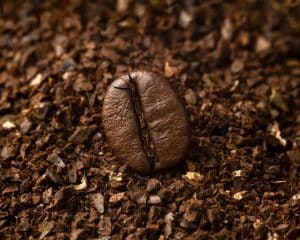How Long Do Coffee Beans Last?

If you’ve been making coffee for a while now, you probably know that the freshness of the beans is a strong determinant of how your coffee will end up tasting.
Fresh beans yield the best coffee, flaunting all the flavor notes you love. But do you know how long coffee beans stay fresh after you buy them?
The compounds in coffee beans that give it that beloved flavor are sadly very volatile. This is why the longer the coffee beans are exposed to the environment, the sooner they go bad.
Determining the freshness of your coffee is important in preventing the use of stale coffee beans, which will ultimately result in bad-tasting, rancid coffee.
To figure out how long coffee beans are good for, read on! After all, nobody likes stale-tasting coffee. Ever.
Factors Influencing the Freshness of Your Coffee
Before we get into the details, it’s important to know that certain environmental and other factors can play a role in how long your coffee stays fresh. These are as follows:
Storage Conditions
How you store them greatly influences how long coffee beans last. Storing them in a transparent container without a lid or storing them in a place that is exposed to direct sunlight will definitely speed up the oxidation process, causing them to go bad sooner.

Instead, experts suggest that you store your coffee beans in an air-tight container or Ziploc bag (preferably one that is opaque) in a dark, dry, and cool place. You’ll then optimize their shelf life.
Humidity
Highly humid environments cause everything to go bad sooner. The same is the case with coffee beans.
If you live in a climate with high levels of humidity, store your beans in a temperature-controlled place, such as a room with air conditioning or a refrigerator.
Heat
Like humidity, heat isn’t exactly your best friend when it comes to retaining the freshness of your coffee beans.
High levels of heat will also cause your beans to go bad faster, so you might want to store them in a cooler part of the house or the refrigerator to prevent that from happening.
Roast Level
The level of roast also plays an important role in keeping your beans fresh.
Dark roasted coffee beans tend to stale faster than unroasted or lightly roasted variants. This is because dark roasted beans or espresso beans are more porous and have an increased surface area for environmental exposure, speeding up the oxidation process.
Quality of the Beans
Obviously, if you have low-quality coffee beans to begin with, they’ll go bad at a disappointingly fast pace. It’s important to invest in good-quality beans so they last longer and taste better.
Condition of the Beans
And lastly, it depends on whether you have whole beans or pre-ground beans.
Given that increased exposure results in faster oxidation, pre-ground beans tend to go bad quickly once the bag is opened. In storage, they might last longer since the bag is usually vacuum-sealed to preserve freshness, but once opened, ground beans only stay fresh for up to a week.

So How Long Do Coffee Beans Last?
The actual time varies with all the factors listed above. But according to my research, here are a few figures I came across for different type of beans:
Raw Coffee Beans
Green or raw coffee can last for up to a year, all the while maintaining optimum flavors. In total, they have a shelf life of up to five years given that they’re stored in perfect conditions.
Roasted Whole Beans
Roasted beans that come in a vacuum-sealed bag can last for up to three to five months. When opened, a bag of coffee beans remain fresh up to six weeks after the roast date if stored appropriately.
Ground Coffee Beans
An unopened bag of ground coffee beans that is still vacuum sealed can last for two to four months. When opened, it’s best to use ground coffee within a week before it loses flavor.
How to Check the Freshness of Your Coffee Beans
If you have a bag of coffee beans lying around, how do you figure out if they’re fresh or not? Here are some ways to check the freshness of your coffee beans.
The Appearance
Fresh coffee beans are supposed to look glossy and shiny due to the presence of all those precious coffee oils.
If your beans look dull and matte, they’ve probably lost the oil and are going stale, which means they won’t impart all the good flavors you expect them to.
The Smell
You can smell fresh coffee beans the second you open the bag. The strong coffee aroma is undeniable.
Stale coffee beans won’t smell that way. They’ll barely have the coffee aroma you’re used to, or they might even smell like something old and rancid.
The Taste
The surest way to know if your coffee beans are still fresh is by brewing a small amount to check the taste.
Fresh beans will give you your usual aromatic, flavourful cuppa while stale beans won’t. Coffee brewed from stale beans will either taste too bitter, too rancid, or won’t have much of a taste at all.
How to Keep Your Coffee Beans Fresh
If you’re tempted to buy coffee beans for a good deal at your local grocery store, we don’t blame you. Here are some tips that might help you keep those beans fresh for longer.
Choose the Right Container
When choosing a container for your coffee beans, it’s imperative to choose a non-reactive material. Inert materials like ceramic and glass work best.
This will prevent the container from reacting with the beans and imparting any weird flavors.
You also want something that’s opaque or even something that completely blocks out the light. This is to minimize exposure to direct sunlight.
Only Buy as Much Beans as You Need
I know this is a no-brainer, but really, only buy as much as you need. Don’t buy in bulk. While you might save a buck or two by buying in bulk, it will ultimately cost you the taste of your coffee.
Freeze Them
It is still debatable whether you should freeze your leftover coffee beans or not.

This is because coffee beans are hygroscopic, meaning they absorb moisture and odors from their surroundings. Freezing them and then thawing them before use isn’t really ideal when it comes to retaining their freshness.
However, if you have bought a bulk of coffee beans, freezing a portion of them might be a good idea.
To freeze your beans, put them in air-tight bags and freeze them in portions so you’re not exposing all the beans every time you take some out.
FAQs
Are coffee beans that are years old still good?
In terms of safety, drinking old coffee beans shouldn’t harm your health (unless, of course, they’re visibly rotten).
Keep in mind that there is no guarantee in terms of taste; they might taste fine or they might taste really bad depending on how they were stored.
Instead of using this coffee to make your cuppa, maybe try baking with it or using them for another DIY.
How long does sealed whole bean coffee last?
Sealed whole bean coffee should be good for up to six months if stored in optimum conditions.
How do you know if coffee beans are bad?
Coffee beans do not necessarily go bad when they’re past the expiry date.
To really check if your beans have gone bad, you should look, smell, and feel them. Depending on how old they are, they might look dull and matte or even be distorted.
They’ll smell bad or just not smell like anything at all. Old coffee beans also won’t have the residue from fresh coffee oils like new beans.
To Sum It All Up
To get the best cuppa from your coffee beans, retaining their freshness is of utmost importance.
Coffee beans, as precious as they are, are super sensitive to their surroundings. This is why storing them appropriately and in the right conditions is important.
However, if you have a bag of old coffee beans lying around, you can always check them for freshness before tossing them out.
And if you plan on buying coffee beans in bulk, follow the tips above to make sure you’re doing what you can to keep them fresh.
Owen is a writer and editor at Caffe Streets who considers himself a coffee fanatic. He spends his time researching and testing different coffee beans and brewing methods and sharing what he learns with others.





